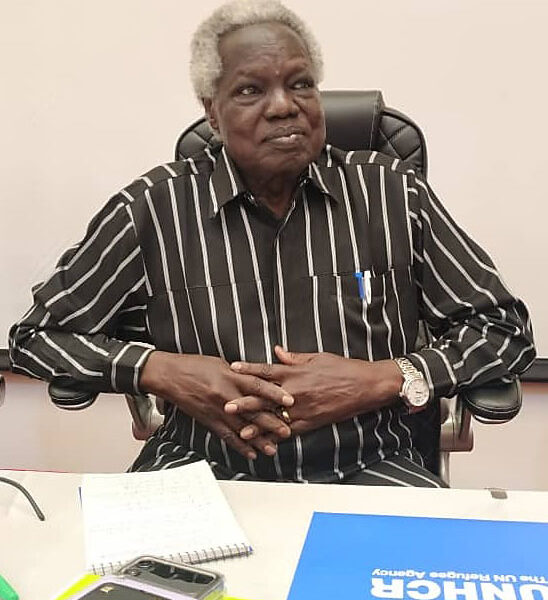By Charles K Mark
Chief Justice, Chan Reec Madut, has raised concerns about the lack of justice accessibility for some refugees in the country.
He highlighted that individuals whose rights are at risk are often caught in the middle due to a lack of knowledge about legal procedures.
Madut explained that some, especially illiterate individuals, face language barriers, denying them the opportunity to pursue justice.
“Some of these people, they come to the court, they don’t know Arabic, they don’t know English,” Reec said during a UNHCR’s organized round table discussion on Access to Justice in Juba on Friday.
The Chief Justice suggested the provision of complaint boxes where such communities could submit their grievances.
He emphasized the need to form a complaints committee to address the issues raised and ensure that justice is served.
Gloria Fabian Nyaki, the Assistant Representative (Protection) for the UNHCR Representation Office in South Sudan, said the agency has provided interpreters but stressed the need to raise more awareness.
Nyaki highlighted the four main indicators the UN’s Office of the High Commissioner for Human Rights uses to observe the attainment of the rule of law: performance, integrity, transparency, and accountability; treatment of vulnerable groups; and the institutional capacity to perform their functions.
“Impunity remains a major challenge in Sexual and Gender Based Violence (SGBV) response. Challenges related to witness protection, prompt, structured and effective relief are noted in our context,” she revealed.
To address these challenges, Nyaki said UNHCR has taken steps to enhance access to justice, particularly for SGBV survivors. This includes facilitating access to legal representation, interpreters, and supporting state efforts to establish and administer mobile courts.
Improving access to justice also involves sensitizing returnees, internally displaced persons (IDPs), and refugees about SGBV and women’s rights, as well as the available support and remedies if their rights are violated.




